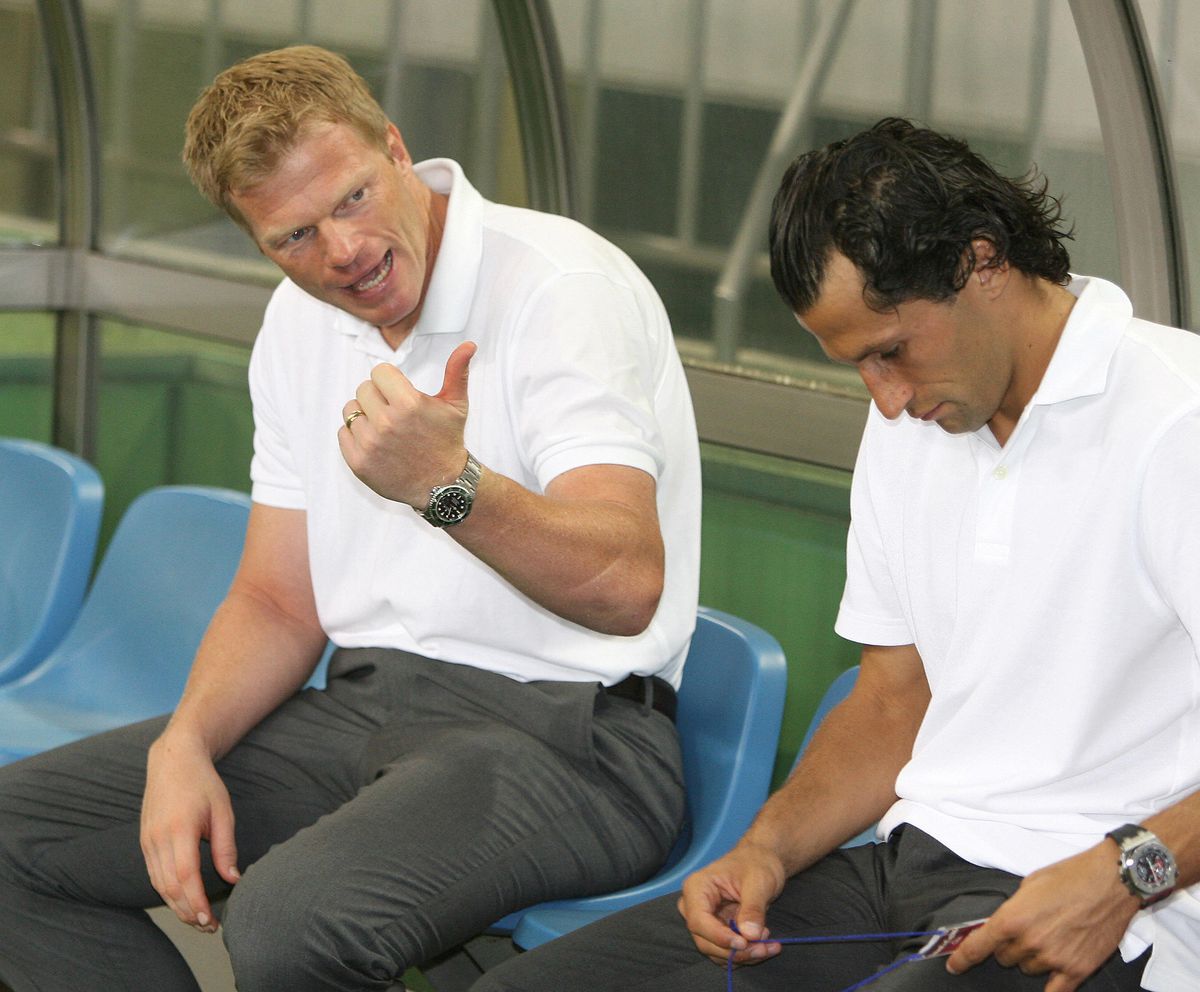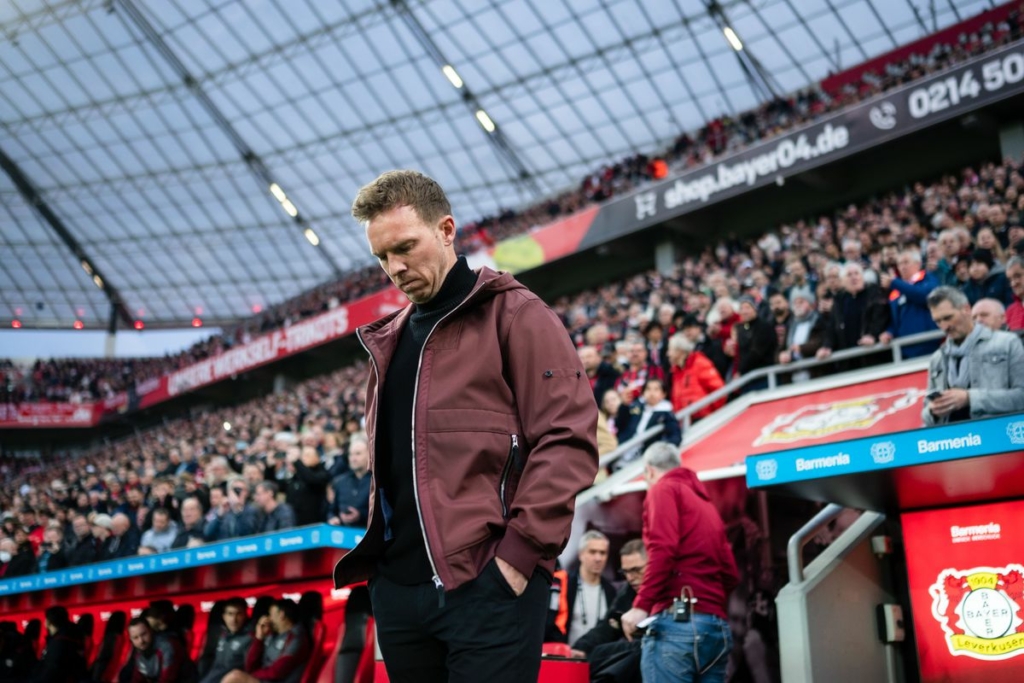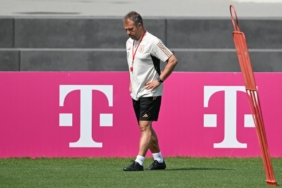The marquee event of this season is clearly the removal of Julian Nagelsmann as the coach of Bayern Munich. While the move has not produced the desired results, there is still a great deal of confusion as to why Bayern’s leadership made this decision at that juncture of the season. Here we will try to explore the factors that led the executives to pull the trigger on Nagelsmann’s tenure, for good or ill.
The public reason given was that the move was to protect the team’s chances at winning all three trophies this season. But that is too obvious, too facile. Every choice made at a sports club should be made to deliver better results on the pitch. There is no reason to doubt that the decision was made in the hope of better results but that tells us nothing. What we want to know is why the club decided that Nagelsmann didn’t give them the best chance of delivering optimal results.
So after scouring the internet and devouring too many articles to remember, we are breaking down the reasons for the coach’s dismissal into three categories: Political/Cultural, Performance and Market Forces.
Political/Cultural
Every organization, Bayern Munich included, has its own culture and personality. Bayern’s is steeped in German and Bavarian tradition, and to be frank is quite conservative in nature, especially on the financial side. There is some good evidence that Nagelsmann was not a good fit for the team’s culture.
The most glaring example of this “culture clash” was the comments made about the coach going on holiday after the loss in his final game before the international break. At first this seemed like a rumour, but then supervisory board member Uli Hoeness gave full throat to this factor when he commented that things might have been different had Julian been around Munich working during the break.
The appearance of working hard, especially during crisis carries a lot of value in certain cultures, and that appears to be the case at Bayern. The phenomena is often seen in offices were people compete to see who can be in the earliest and stay the latest, in order to create the image of a driven loyal servant no matter how effective that approach may be. Julian’s hitting the road for a vacation at that troubling time may have been perceived as a failure of leadership and lack of seriousness by the older, very conservative members of the executive.
Combined with Julian’s bad judgement in dating a reporter who was covering the squad (who had done a formal interview with him for publication just a month before they were spotted together on a yacht), riding about town on a motorcycle or skateboard, and his general demeanour and dress seemed a poor cultural fit with the conservative front office.
Juilan’s Enfant Terrible persona may have caused some serious friction with the board.

Performance
It has been reported that three particular areas of the team’s performance under Nagelsmann caused the brain trust serious concern.
A) Dropping 10 points in the league standings
Despite a pristine record in the Champion’s League Bayern’s domestic form was heading downhill.
When play resumed after the winter break, Bayern held a ten point lead over Dortmund, their traditional rival for the league title. Two months later, when Nagelsmann was sacked, the club had dropped ten points to their rival and were one point behind them on the table.
Now Dortmund had gone on a blistering run over that period but sports is relative. Whether they are playing poorly or well, success is measured by doing better than your opponents. Dropping virtually a point a game to the second place side over a long stretch was cause for significant concern in the front office.
This factor also dovetails nicely with the long history of Bayern executives saying that winning the Bundesliga is always a core or foundational goal for the club. It appears they meant what they have historically said on that topic.
B) Nagelsmann’s tactics and choices were not working
Bayern’s leadership decided that Nagelsmann’s systems and personnel choices were not working, and they had some significant information to base that on.
The Athletic, was kind enough to publish a chart showing the xG for and xG against for Bayern on a ten day rolling average over the last part of Kovac’s time at Bayern, all of Flick’s time at Bayern and all of Nagelsmann’s tenure with the team. Out of respect for their IP we will not be reproducing it here.
In a chart like that, a successful system or team has the largest gap between the lower line and the upper line possible, demonstrating good defence and offence. When you have a large number of games to look at, it tells you a lot about how well a team is functioning.
Unfortunately the numbers for Bayern were bad and getting worse. The lines were moving closer together steadily over time, which should come as no surprise as the team dropped 10 points to Dortmund as time went on.
In fact the gap, over a long stretch of games had become smaller than the gap that Kovac’s Bayern was exhibiting at the end of his tenure.
So the board was faced was significant data that the team’s league performance was getting worse rather than better as the season went on. Bayern was on pace to have its lowest point total in the league since 2010-2011 when the club ejected the manager.
C) Bayern was terrible in close games
The executive offices were concerned about Bayern’s records in close matches in the league this year. The numbers in this regard are quite humbling.
A close game is one that is decided by 0-1 goals. At the time of Nagelsmann’s sacking, Bayern had the third worst record for close games in the league. That’s right, in that area Bayern was performing like a team fighting against relegation.
At first, this stat seemed a little fishy and maybe even misleading. Perhaps it was just an artifact of Bayern’s quality compared to the rest of the league. Common sense tells us that if Bayern is going to drop points to a Bundesliga opponent it will likely be a draw or a one goal loss, and they are likely to win by multiple goals frequently. So that statistic could be a bit of an illusion. That was a concern until we saw the statistic expressed a different, and perhaps more meaningful, way.
In close games over the last five years before this season, Bayern averaged just a hair under two points a game. This year, Bayern was averaging just a fraction over 1 point a game in close games in the league. Nagelmann’s Bayern was producing almost a point less a game in close matches than recent history. A serious drop.
By my count there were twelve close games in games Nagelsmann coached in the league this year, and if you use say .9 points/game difference, that meant our season was running almost 11 points behind where it should have been based on recent historical statistics.
Does anyone think Nagelsmann would have been sacked if he was 10 points ahead of Dortmund or even just 4 points in first at the international break?
That’s the quantitative side of losing those close games, but what about the qualitative analysis? What do those close losses mean in real terms?
Leaving aside the factor of luck, or contingency, close games are usually decided by either small tactical advantages, or extra effort by the players of one squad to get the result in a key moment. These numbers tell us Bayern was not benefitting from either of those two factors. It seems likely that the Bayern front office concluded that Nagelsmann was not consistently producing superior efforts from his side, or giving them enough tactical advantage to make the difference in close games.

Market Factors
It is no secret that Bayern had wanted Tuchel as a coach for quite some time. The club is reported to have approached him to take over in 2018, but the move was stalled by Uli expressing concerns. By the time Bayern had gotten a consensus together to go after Tuchel, he had already committed to PSG and the club (to its long term benefit) went in another direction.
Bayern was in contact with Tuchel’s people when they began questioning whether Julian was the right person to continue to lead the team. They communicated that Thomas was considering other offers, apparently from Real Madrid and Tottenham amongst others and would not likely be on the sidelines for long. That left the front office in a quandary. They needed to make a decision quickly on whether or not to fire Nagelsmann and replace him with Tuchel. They made that decision and here we are.
Conclusions
Like most decisions of this nature, there are often multiple factors involved in ending the tenure of a coach. There were other sources referencing the failure to develop young players, the blow-up with Neuer, and some other factors (even his fake eye-brows) but based on a wide analysis of the quality and consistency of reporting we decided to limit our approach to the factors above.
If Nagelsmann’s sacking was not a perfect storm of issues cultural, sporting performance, and FOMO, it was pretty darn close. Which factors weighed heaviest is anyone’s guess.
And as a teaser, there is now some reporting going around that it was not Kahn and Brazzo who wanted Nagelsmann’s tenure ended, but that the decision was made even higher up the food chain and sent down to them. Stick around while we try to run that interesting tidbit to ground.















